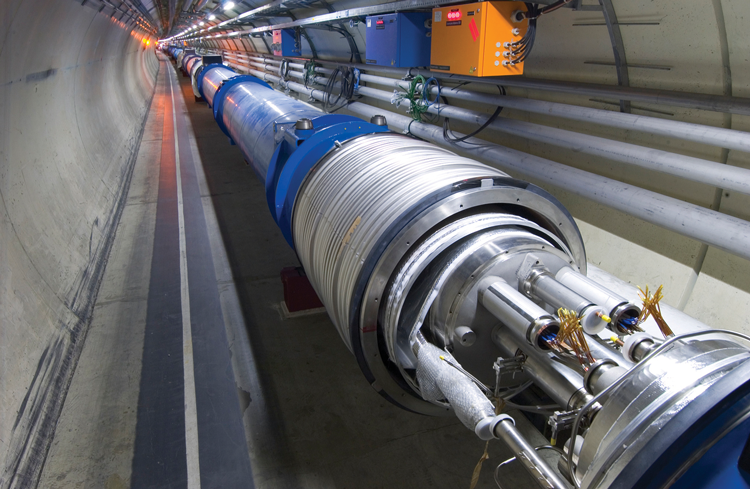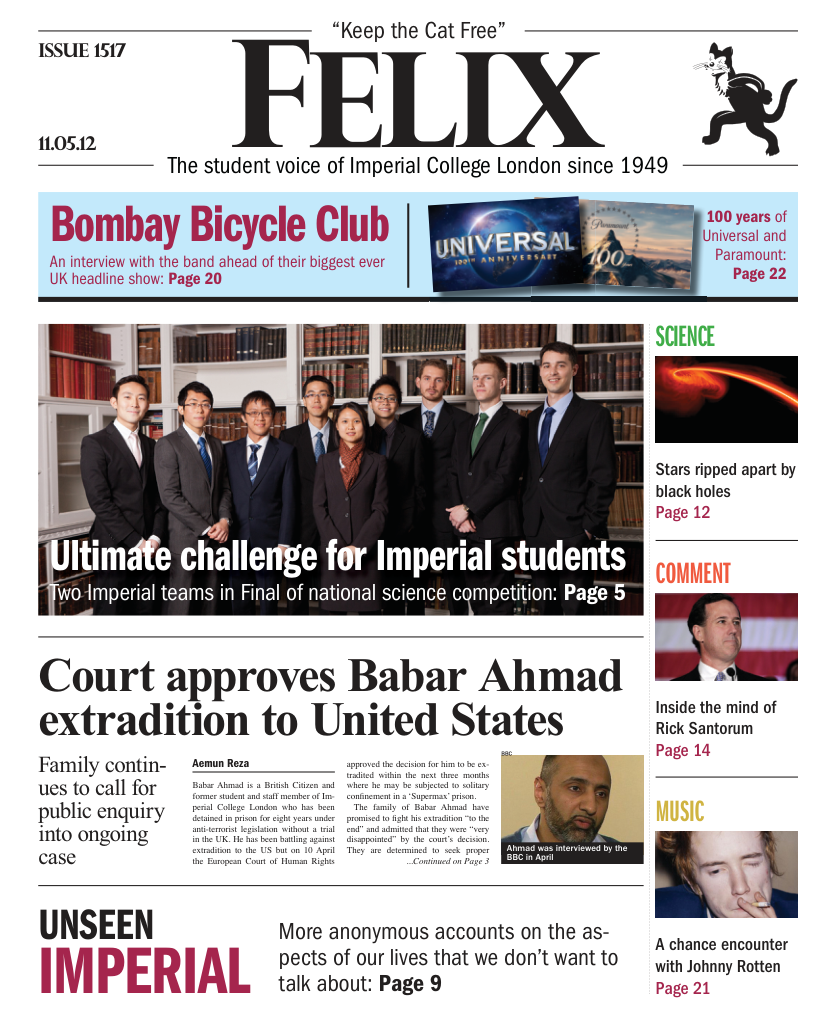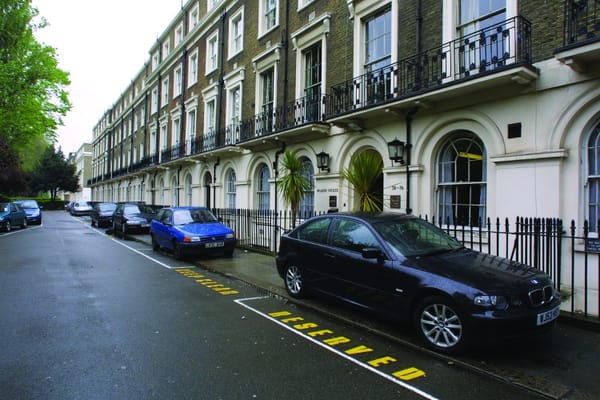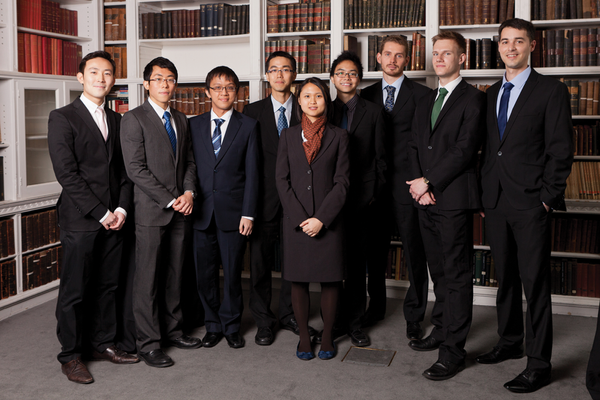Science Challenge concludes at the House of Lords
Cash prize and tour of CERN awarded at Grand Final

The results of the 2012 Science Challenge were announced at a reception at the House of Lords on 22 March. The Science Challenge, run annually by Imperial’s Royal College of Science Union, invited students from the College, as well as secondary schools around the country, to answer science based essay questions set by high profile judges. One Imperial and one schools winner was chosen from the answers to each question and an overall winning College and schools essay was then chosen from amongst these.
Second year undergraduate Eugene Lee was the Imperial winner in the first category, in which Professor Lord Robert Winston asked “What are the five main ethical issues that face modern science and how do we tackle them?” Lee told Felix that he “chose the ethics question because it was the one closest to my heart; being a biomedical science student”. He got his “inspiration to write about it using the laboratory as a reference starting point for a narrative”. While “it was hard to choose only five of the biggest ethical issues for the essay though” since ethics is “something that permeates all corners and areas of science” he says that there was the added benefit that “ethics is something that everyone feels strongly about and can relate to easily” which meant that it is a topic he could confidently write about “without going into too much technical detail” for a layperson reader.
ethics is something that everyone [...] can relate to easily Eugene Lee
Mathematic postgraduate Matthew Gipon’s work was judged to be the best Imperial answer to the second question, set by BBC science correspondent and former Felix Editor Pallab Ghosh – “What is the role of science journalism in the 21st Century?” In his essay Gipon argues that a modern science journalist should not only move beyond “regurgitating press releases” but also retain a broad focus and consider “the political, economic and social dimensions” of scientific results.
Cell & Molecular Sciences postgraduate Christopher Waite was chosen as the winner in the third category, in which senior Accenture executive Peter Lacy asked “What scientific breakthrough should we focus on to provide sustainable food, energy and water for nine billion people on a planet of apparently finite natural resources, and why?” Waite says that his background in biology means that he has always had “a passion for plants so presenting their case as a solution to the imminent global food and fuel crises was an easy choice for [his] answer to the sustainability question”. He chose to write about “genetic modification of the hub for photosynthesis, the chloroplast” since this area has a great deal of potential. Waite says that chloroplasts “can house a plethora of bacterial genes with a variety of functions while allowing some primary risks of traditional GM to be circumvented”.
more scientists should become more actively involved in the political process Carys Cook
Engineering postgraduate Carys Cook was selected as the overall winner for her answer to the question “How should politicians best make use of science?” set by Times Science Editor Mark Henderson. Titled “Parliamentary Election Manifesto of a Scientist Turned Politician” her essay outlines how a widespread scientific illiteracy amongst members of Parliament has made her decide to turn to politics. Cook told Felix that “the lack of scientific literacy in politics explains why politicians dismiss scientific advice about issues incredibly relevant to the public, such as climate change or drug policy”. She believes that “more scientists should become more actively involved in the political process” and that “improved understanding of the scientific process will not only ensure politicians will better consider scientific information, but will make them more objective and better decision makers”.
As overall winner Carys received a cash prize of £2,000 and a tour of CERN for herself and one guest. The other Imperial winners received a £500 cash prize each. Waite says that he considered the tour of the Houses of Parliament that preceded the awards presentation “an ample prize in itself – the gold-encrusted Lords Chamber, in which you are under the watchful eye of the barons and bishops who signed the Magna Carta 800 years ago, was a magnificent climax.” Lee commented that “the House of Lords was a fitting place for the ceremony” and that he did not know how “the committee could top this year’s ceremony for next year’s competition”. He added that, “all in all, it was really meaningful and everyone should be encouraged to join.”






